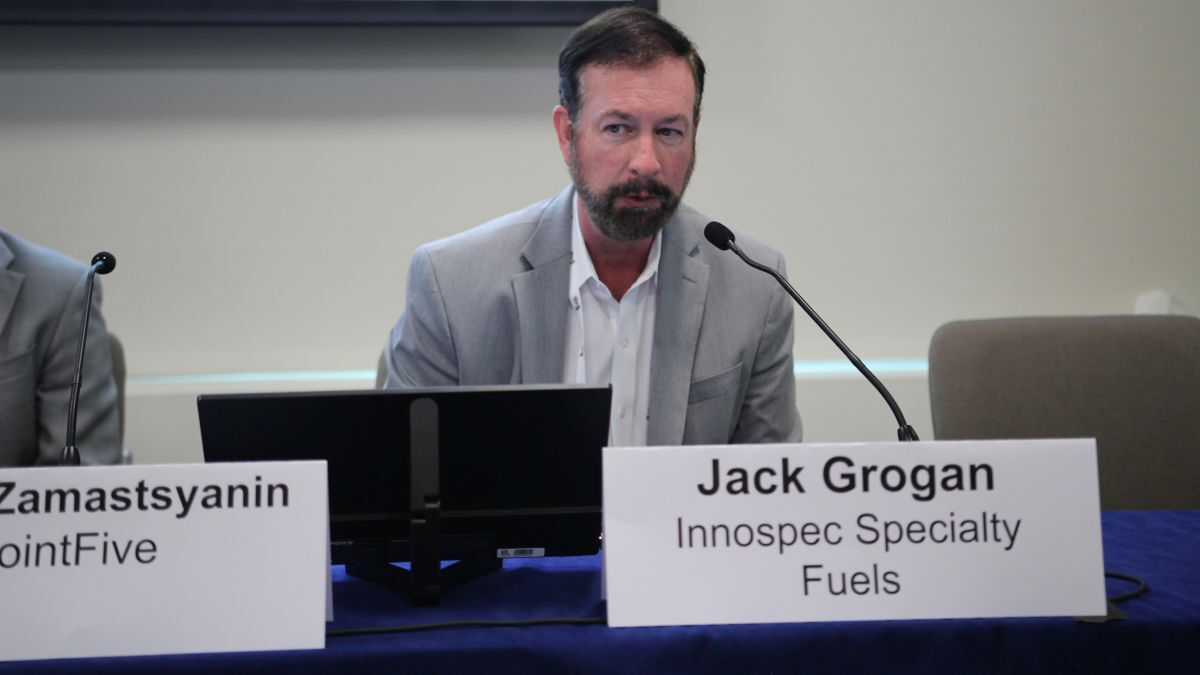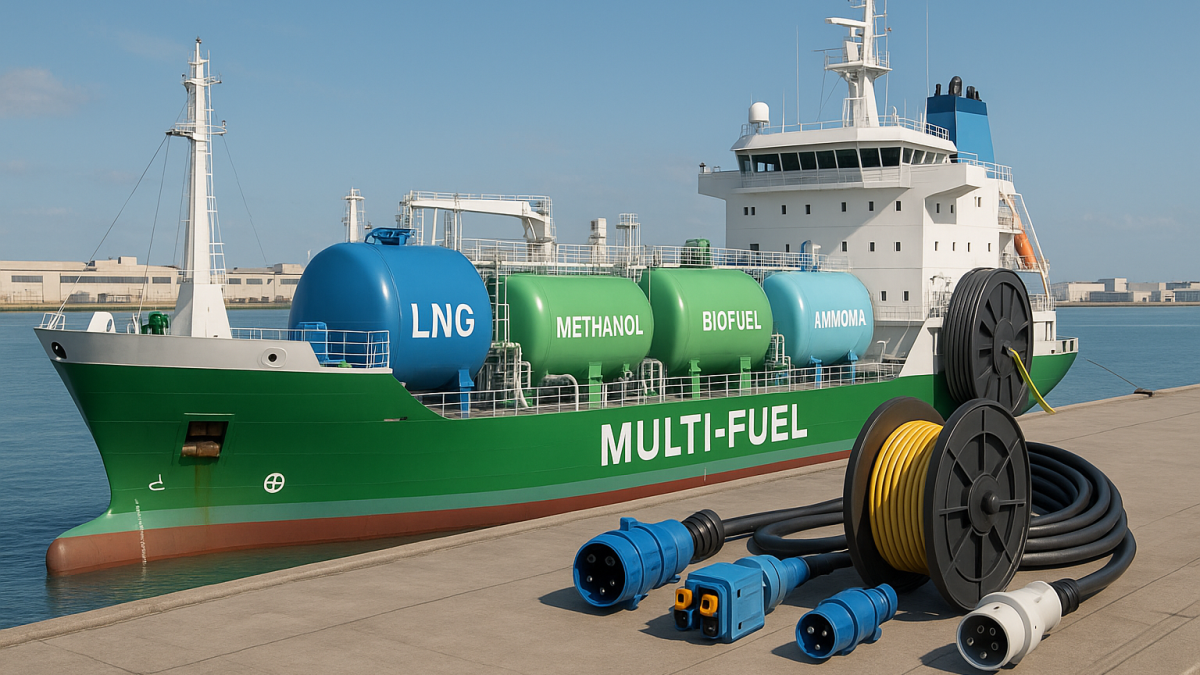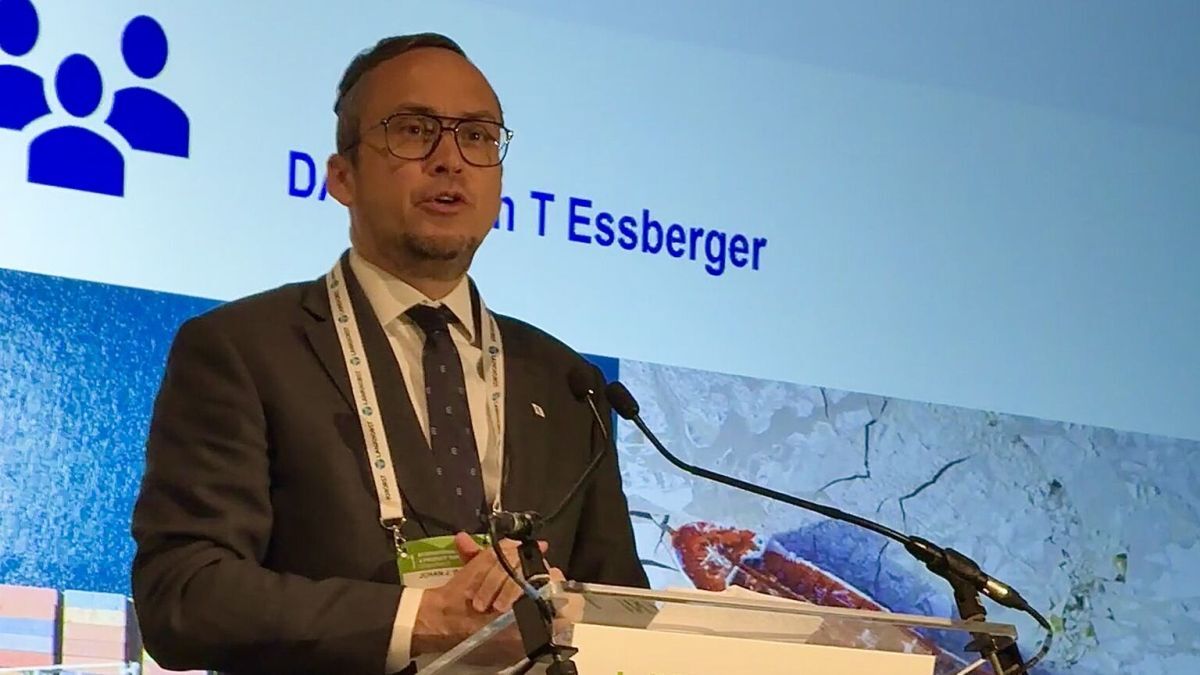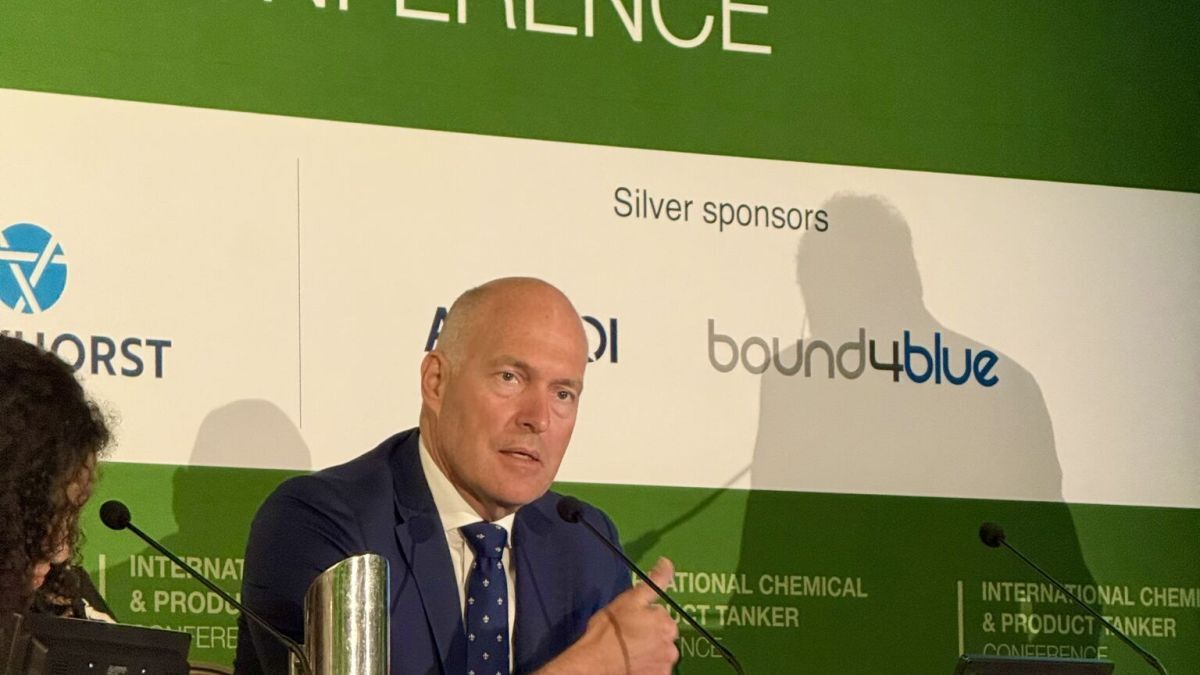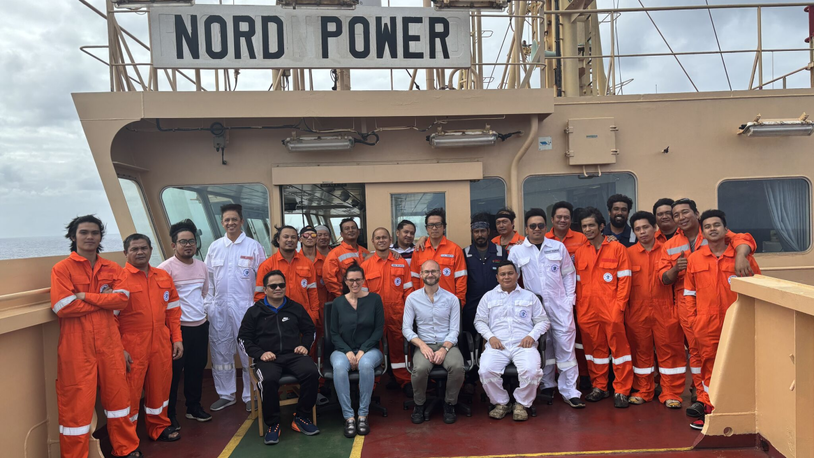Business Sectors
Events
Contents
Register to read more articles.
Fuel additives ‘boost maritime decarbonisation efforts’
New data shows advanced fuel additives can deliver immediate 3% fuel savings across the maritime sector while reducing emissions without major infrastructure changes
Speaking at Riviera’s Maritime Decarbonization Conference Americas, Innospec Speciality Fuels senior technical sales manager Jack Grogan presented results from a 156,000-dwt crude oil tanker trial using very low sulphur fuel oil (VLSFO), demonstrating significant efficiency gains through enhanced combustion.
A 3% reduction in specific fuel oil consumption offers several significant benefits, said Mr Grogan. One of the primary advantages is cleaner engine components, which leads to reduced maintenance needs and costs. Additionally, there is a substantial 70% reduction in sludge formation, decreasing from 800 m3 to 200 m3 annually. This reduction in sludge not only improves operational efficiency but also contributes to a proportional decrease in CO2 emissions. These improvements help lower compliance costs associated with the European Union Emissions Trading System (EU ETS), he added, making operations more cost-effective and environmentally friendly.
"For a vessel burning 15,000 tonnes of VLSFO annually, a 3% efficiency improvement could save US$280,000 per year in fuel and carbon taxes by 2025," Mr Grogan calculated, noting this would "more than cover additive costs by a factor of 100."
Comprehensive testing using the IP541 fuel ignition analyser revealed significant performance improvements across multiple combustion parameters.
In particular, the research indicated a 7% improvement in the cetane number, which suggests enhanced fuel quality and more efficient combustion initiation.
Researchers also observed a 10% faster main combustion period, indicating more rapid and efficient fuel burning. This acceleration can potentially translate to improved engine responsiveness and energy conversion efficiency.
The analysis also documented a 5% reduction in post-power stroke burning. This decrease suggests more precise and controlled fuel combustion, which could lead to reduced energy waste and potentially lower emissions.
Mr Grogan, who previously worked at an independent testing laboratory, warned that additive selection is crucial, "Some additives work quite well, some do very little, some do nothing, and I’ve seen two that actually made fuel performance worse."
The technology offers promise for VLSFO, which Mr Grogan noted has higher paraffinic content than traditional marine fuels, making it more susceptible to compatibility issues and sludge formation. The additives can also extend the storage life of biofuels, addressing a key adoption barrier.
For port authorities and terminal operators, Mr Grogan emphasised the technology’s immediate applicability to land-based equipment running on liquid fuels, offering "a partial solution that could be implemented tomorrow."
Sign up for Riviera’s series of technical and operational webinars and conferences:
- Register to attend by visiting our events page.
- Watch recordings from all of our webinars in the webinar library.
Related to this Story
Events
Maritime Environmental Protection Webinar Week
Cyber & Vessel Security Webinar Week
The illusion of safety: what we're getting wrong about crews, tech, and fatigue
Responsible Ship Recycling Forum 2025
© 2024 Riviera Maritime Media Ltd.


